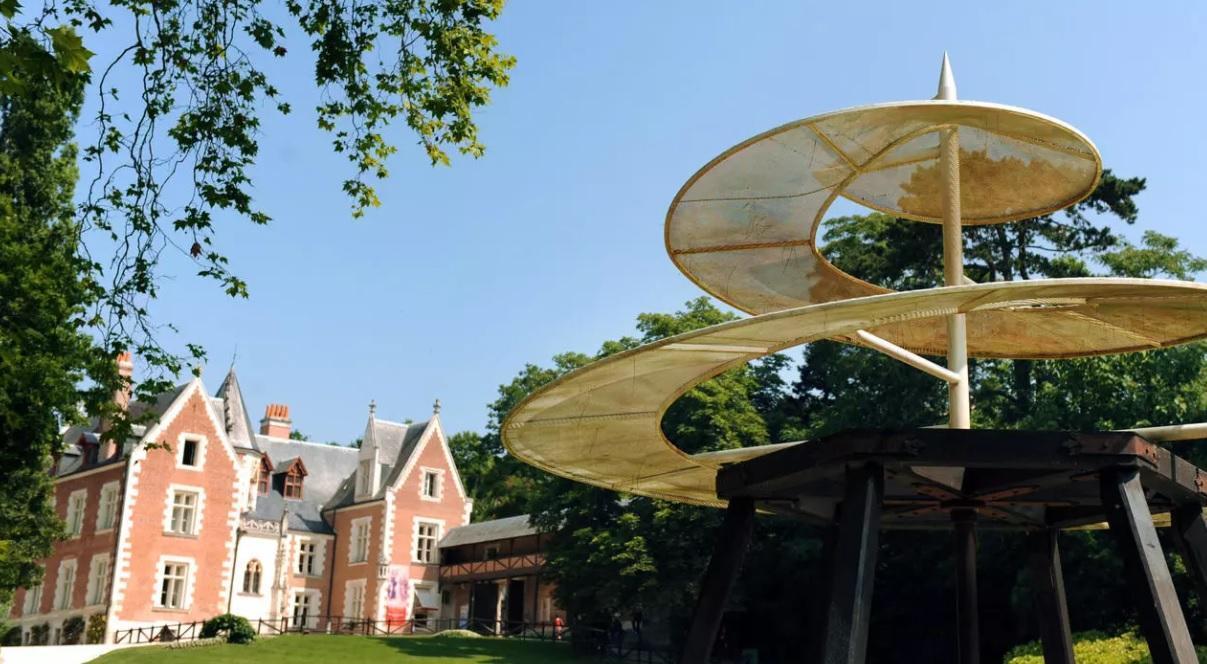
A new virtual gallery of Leonardo da Vinci's paintings that plunges the viewer into the Renaissance master's creative process opened on June 25 at the manor in central France where he spent the last three years of his life.
The 12-minute immersive experience envelops the visitor with the paintings and the sketches that preceded them, projected onto the walls and rounded ceiling of a darkened gallery at the Clos Luce in the town of Amboise.
Close-ups, notably of faces and hands from masterpieces such as The Virgin and Child with Saint Anne but also of fabric folds, flora and other details, deepen the viewer's appreciation of the artist's virtuosity.
The Last Supper is shown in its stages, starting with the background, adding the table and finally Jesus and the Apostles.
The virtual masterclass also delves into Leonardo's trademark sfumato technique - the subtle blurring of the edges of images that creates a 3D effect - and his mastery of perspective.
"Nothing is left to chance in Leonardo's masterpieces," said Clos Luce president Francois Saint Bris, who led exhaustive documentary research to select the drawings.
The immersive experience "evokes Leonardo's power and grace," he told reporters.
Anne Carles of Arc-en-Scene, the show's principal creator, likened it to a concerto: "an overture with the 17 works gathered in an imaginary gallery" followed by a series of themed sequences, "from smiles to drapery, from background landscapes to perspective".
Then, "each of the scenes is deepened by the presentation of all his preparatory drawings," Carles told AFP.
For her, Leonardo "became a very intimate subject. You enter into dialogue with the universal artist."
The virtual show brings together more than 200 works including all the paintings fully attributed to the Florentine, housed at 13 institutions around the world.
"We created this miracle of uniting them all in the same place," Carles, 65, told AFP by telephone from Tahiti, where she is working on her latest project.
The two floors of the repurposed industrial building - a watermill still turns nearby - cover 500 square metres, twice its original size.
Four years in the making at a cost of 2.3 million euros ($2.7 million), the overall project involved 60 companies.
"The project allowed us to support employment and maintain our staff" during the coronavirus pandemic, remarked Saint Bris, 69, whose family has owned the Clos Luce for 166 years.
It is the latest phase in the "digital transformation of the Clos Luce", he added.
One half of the upper floor, flooded with light thanks to the building's industrial "shed" shape, explores Leonardo's work as an architect and urban planner, also offering displays attesting to his musical and mathematical gifts.
As the "first painter, engineer and architect" to French king Francis I from 1516 until his death in 1519, the polymath also put his genius to work creating lavish entertainment for the court in Amboise, then the royal seat on the banks of the Loire River.
Leonardo built the sets and sewed the costumes himself - making him an "ephemeral architect", in the words of the exhibit.
A video shows the Clos Luce's re-enactment in 2014 of a show that Leonardo laid on for wedding guests that featured pyrotechnics and an elaborate rotation of the planets over their heads.
The other wing of the ground floor includes a science lab for schoolchildren, transferred from elsewhere on the sprawling Clos Luce grounds.
Attracting around 30,000 pupils each year, the workshops explore Leonardo's inventions and teach drawing and painting techniques.
"Leonardo de Vinci is a boundless subject," Carles said. "Everyone comes to it with what they know and keeps learning astonishing new facets."